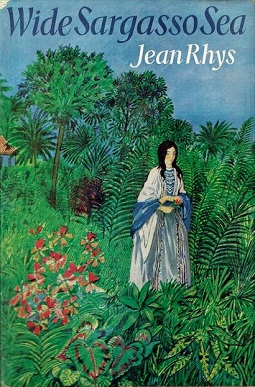Wide Sargasso Sea: Difference between revisions - Wikipedia
 Article Images
Article Images
Content deleted Content added
m |
|||
Line 24: | followed_by = }} '''''Wide Sargasso Sea''''' is a 1966 novel by [[Dominica]]-born British author [[Jean Rhys]]. It is a feminist and anti-colonial{{citation needed|date=April 2021}} response to [[Charlotte Brontë]]'s novel ''[[Jane Eyre]]'' (1847), describing the background to Mr. Rochester's marriage from the point-of-view of his mad wife [[Bertha Mason|Antoinette Cosway]], a [[Creole peoples|Creole]] heiress. Antoinette Cosway is Rhys' version of Brontë's devilish "[[The Madwoman in the Attic|madwoman in the attic]]". Antoinette's story is told from the time of her youth in [[Jamaica]], to her unhappy marriage to a certain unnamed English gentleman, who renames her Bertha, declares her mad, takes her to England, and isolates her away from the rest of the world in his mansion. Antoinette is caught in an oppressive [[patriarchal]] society in which she fully belongs neither to Europe nor to Jamaica. ''Wide Sargasso Sea'' explores the power of relationships between men and women and develops [[Postcolonial literature|postcolonial]] themes, such as racism, displacement, and [[cultural assimilation|assimilation]]. Rhys lived in obscurity after her previous work, ''[[Good Morning, Midnight (Rhys novel)|Good Morning, Midnight]]'', was published in 1939. She had published other novels between these works, but ''Wide Sargasso Sea'' caused a revival of interest in Rhys and her work and was her most commercially successful novel. | |||